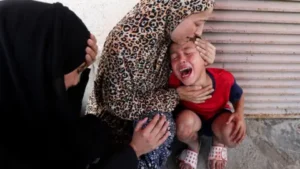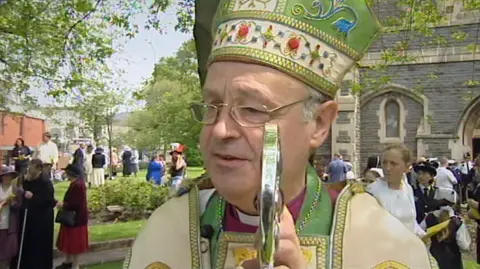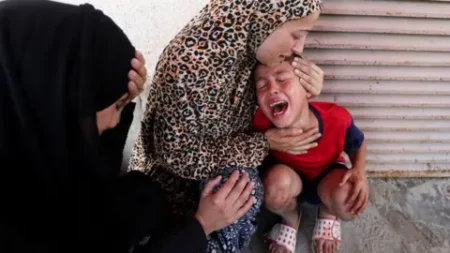The ongoing investigation surrounding allegations of sexual abuse against a former bishop and a vicar within the Church in Wales has ignited considerable outrage and concern within the community. This stark revelation brings to light the historical context of abuse cases within the religious institution, highlighting serious shortcomings in the Church’s safeguarding protocols, as well as the faith of numerous individuals affected by such traumas.
Former Bishop of Swansea and Brecon, Anthony Pierce, who was imprisoned earlier this year for child sexual abuse, is now facing additional accusations related to historical incidents that came to light following a BBC Wales Investigates report. This investigation unveiled accounts from four individuals who detailed their experiences of abuse and subsequent institutional neglect, calling for an independent inquiry into the Church’s actions—or lack thereof. In response to the severity of these allegations, the Church in Wales publicly expressed its remorse and apologized for the suffering endured by victims, acknowledging the “failings” in its response to such critical matters.
The investigation delved into the delays and failures in addressing complaints made against Pierce. Alarmingly, concerns regarding his behavior were flagged to Church officials as early as 1986, long before he ascended to the role of bishop. This raises serious questions about the accountability and vigilance of Church authorities in safeguarding vulnerable individuals within their communities.
South Wales Police are currently leading the investigation into these allegations. The inquiry extends beyond Anthony Pierce, encompassing claims against another former vicar, highlighting a systemic issue that seemingly permitted abusive behavior to persist unchecked within Church ranks for decades. Testimonies from alleged victims further illuminate the culture of silence and complicity that facilitated these transgressions.
One victim, Alisdair Adams, shared disturbing details from his encounters with Pierce during the 1980s, showcasing the manipulative and predatory behavior that defined their interactions. Alisdair detailed an instance where he felt uncomfortable and threatened after being invited to dinner, asserting Pierce’s advances and the inappropriate escalation that followed. His account underscores the power dynamics at play, where the alleged abuser’s position within the Church afforded him both protection and intimidation.
Moreover, there is a notable concern surrounding not just the actions of Pierce, but also the failure of Church leadership to act upon reports of abuse within their ranks. Alisdair’s sentiment resonates with many who have endured similar traumas, echoing a call for rigorous investigations that extend beyond individual cases and address the systemic failures that allowed such behavior to thrive in the Church’s environment.
Ruth, another victim recounted her experience with David Gedge, a choirmaster who allegedly assaulted her during a choir trip. Her account highlighted how her allegations were ignored along with a chilling realization that the Church’s hierarchy prioritized the protection of its own rather than the welfare of its congregants.
As such, the current situation demands more than just discourse; it calls for action that includes a comprehensive review of safeguarding procedures, transparency, and accountability within the Church in Wales. The Church has committed to conducting an external safeguarding audit and a cultural review to address these grave concerns. Their spokesperson emphatically stated, “There is no place in the Church for abuse, misconduct, or concealment,” signaling a potential shift in how these matters will be approached moving forward.
Moreover, the broader implications of this investigation resonate within the entire Church of Wales structure, particularly following troubling revelations of a “binge drinking culture” linked to its cathedral community, which only adds to the urgency for reform. The recent retirement of the Archbishop of Wales amidst these findings further indicates deep-rooted issues within Church governance that cannot be overlooked.
In conclusion, the investigation into historical sexual abuse claims against Anthony Pierce and other Church figures reveals a profound need for systemic change within the Church in Wales. Conversations surrounding accountability, revision of safeguarding policies, and transparency must extend beyond mere declarations of intent to meaningful action. As investigations continue, the voices of victims must be heard and upheld, to ensure that such abuses are acknowledged, cannot take place again, and that justice is duly served.











